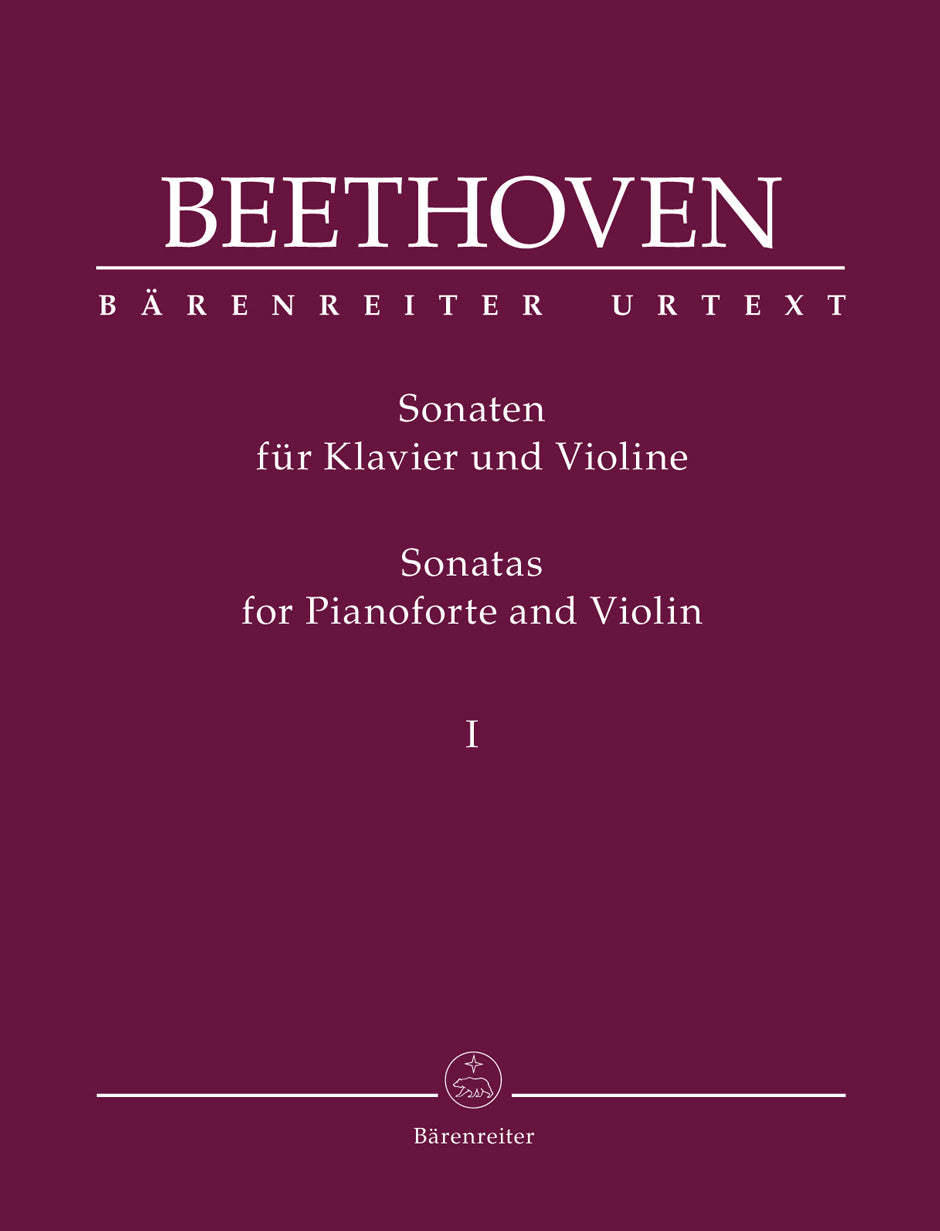Beethoven: Violin Sonatas - Volume 1
In stock and typically ships within 1 business day.
- Composer: Ludwig van Beethoven (1770-1827)
- Editor: Clive Brown
- Instrumentation: Piano, Violin
- ISMN:
- Size: 9.6 x 12.2 inches
- Urtext / Critical Edition
Description
Beethoven's ten sonatas for piano and violin, along with those by Mozart, constitute the heart of this classical music genre. Following the lead of Mozart's late sonatas, Beethoven lets the violin part become increasingly independent from the piano part. Not only does Clive Brown's scholarly critical edition offer a meticulously edited text but for the first time it presents a list of sources and a Critical Report. Furthermore Brown documents a great number of passages where, by today's standards, the notation raises some questions. These passages had previously been overlooked in the autograph but their significance is now clarified. One example can be found in Beethoven's "Tempo di Minuetto" from Sonata, Op. 30 No. 3, where he uses a notational idiosyncracy based on C.P.E. Bach's "Versuch über die wahre Art das Clavier zu spielen" to denote a rest. This musical symbol, which was included in the first edition published during Beethoven's lifetime, has not been addressed in any modern edition to date. in addition, a score through a chord can also not be found in previous modern editions; this denotes an arpeggiated chord.
Works:
Publishers use a lot of words to describe what they sell, and we know it can be confusing. We've tried to be as clear as possible to make sure you get exactly what you are looking for. Below are descriptions of the terms that we use to describe the various formats that music often comes in.
Choral Score
A score for vocalists that only contains the vocal lines. The instrumental parts are not there for reference. Generally, cheaper than a vocal score and requires multiple copies for purchase.
Facsimile
Reproductions of the original hand-written scores from the composer.
Full Score
For ensemble music, this indicates that the edition contains all parts on a single system (there are not separate parts for each player). In larger ensembles, this is for the conductor.
Hardcover
Hardbound. Generally either linen-covered or half-leather.
Orchestral Parts
Similar to a wind set, this is a collection of parts. In the case of strings, the numbers listed are the number of copies included, though generally these are available individually (often with minimum quantities required).
Paperback
When publishers offer multiple bindings (e.g. hardcover) or study scores, this is the "standard" version. If you're planning to play the music, this is probably what you want.
Performance / Playing Score
A score of the music containing all parts on one system, intended for players to share. There are not separate parts for each player.
Set of Parts
For ensemble music, this indicates that there are separate individual parts for each player.
Solo Part with Piano Reduction
For solo pieces with orchestra, this is a version that contains a piano reduction of the orchestra parts. For piano pieces, two copies are typically needed for performance.
Study Score
A small (think choral size) copy of the complete score meant for studying, and not playing. They make great add-ons when learning concertos and small chamber works.
Vocal Score
A score prepared for vocalists that includes the piano/organ part or a reduction of the instrumental parts.
Wind Set
For orchestral music, this is a collection of wind and percussion parts. The specific quantities of each instrument are notated.
With Audio
In addition to the printed music, the edition contains recordings of the pieces. This may be an included CD, or access to files on the internet.
With / Without Fingering (Markings)
Some publishers prepare two copies - a pure Urtext edition that includes no fingering (or bowing) suggestions and a lightly edited version that includes a minimal number of editorial markings.




